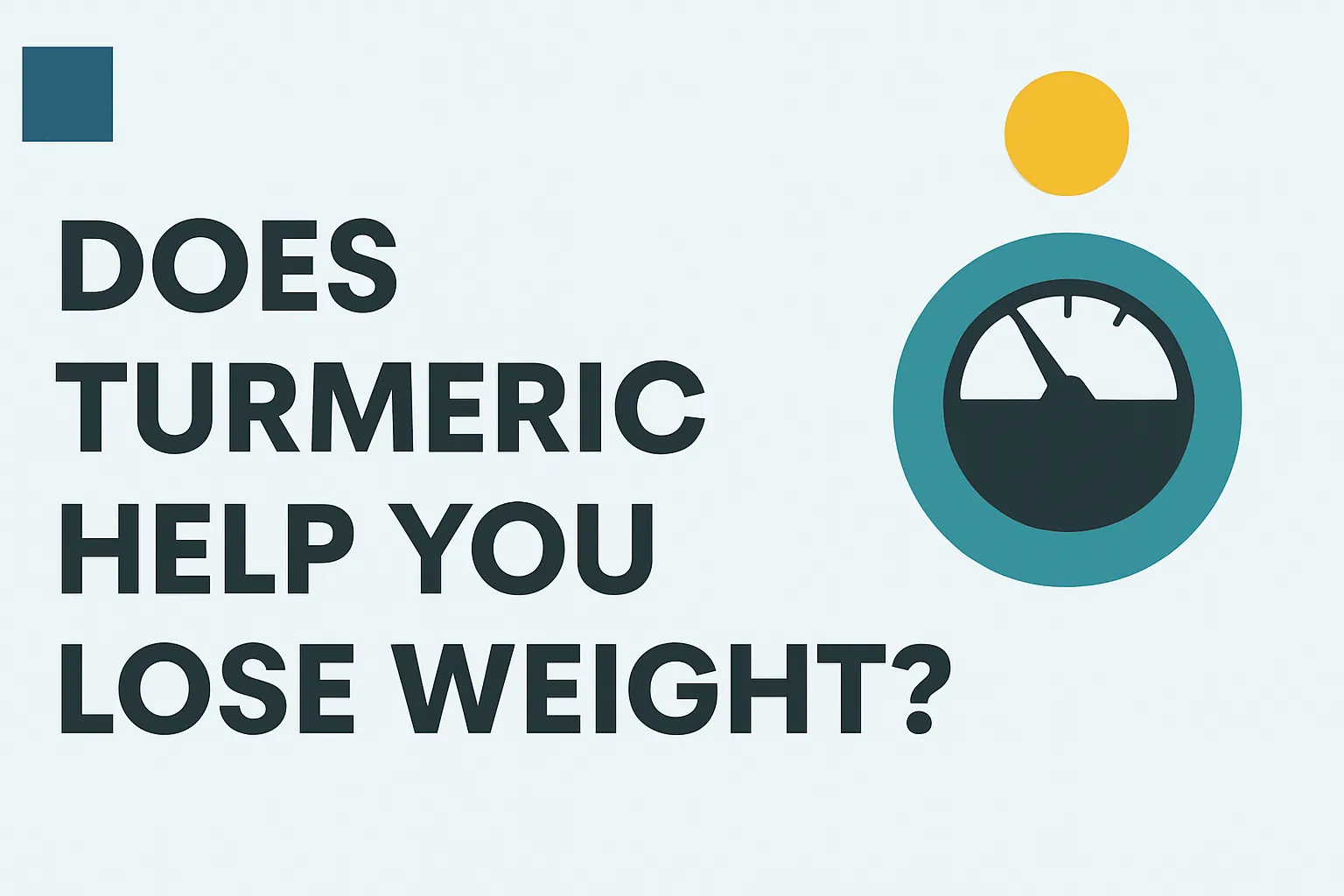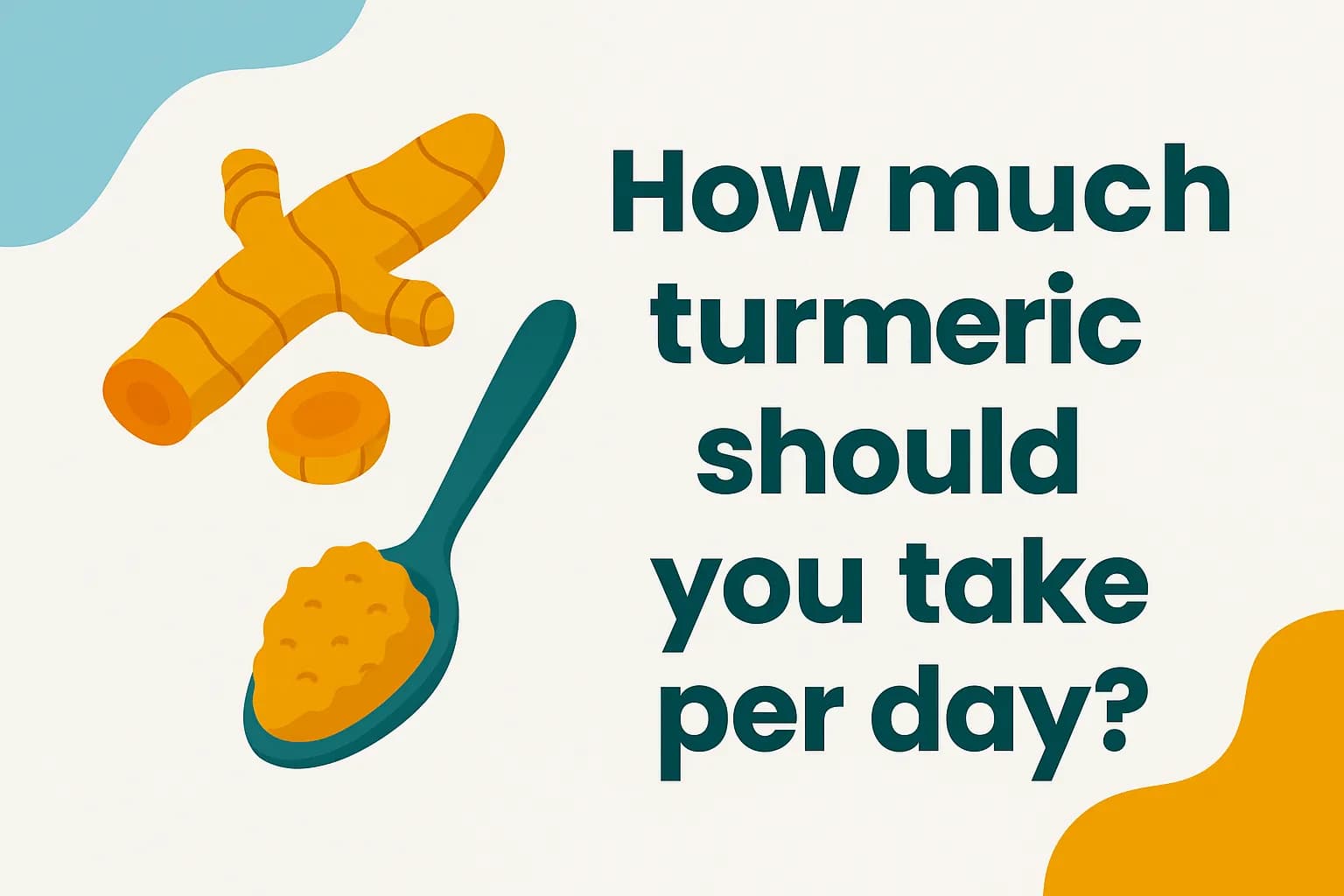Does turmeric help you lose weight?

If you are eating a healthy diet and exercising regularly, you may look to turmeric for additional support in weight loss. Turmeric’s active compound, curcumin, has anti-inflammatory and antioxidant properties that could influence obesity-related processes. Curcumin may block inflammatory markers linked to fat accumulation, as seen in animal studies where it promoted weight loss, slowed fat cell growth, curbed cravings, and reduced insulin resistance.
In human trials, participants taking 800 mg of curcumin with 8 mg of piperine twice daily experienced significant reductions in body mass index, body weight, and waist and hip circumference. A review of 21 clinical studies involving over 1,600 people also found curcumin lowered weight, BMI, and waist size, while increasing leptin and adiponectin levels, hormones that regulate metabolism. Although results are promising, more research is needed before turmeric can be broadly recommended for weight management.
How does turmeric help with weight loss?
Curcumin reduces inflammation, which contributes to obesity, and may improve blood sugar regulation and insulin sensitivity. It can also block fat tissue growth and increase bile production, aiding fat digestion and metabolism. When combined with a balanced diet and exercise, these effects can support weight management.
How can you take turmeric for weight loss?
- Add turmeric powder to foods like curry, soups, or golden milk—but note that powder is poorly absorbed and contains low curcumin.
- Enjoy turmeric or curcumin supplements in capsules, tablets, or gummies; look for formulations with piperine or enhanced‑absorption technology.
Supplements typically provide more consistent curcumin doses and better bioavailability than dietary turmeric alone.
Health benefits of turmeric
- Anti-inflammatory effects for arthritis and colitis
- Antioxidant protection against heart disease and cancer
- Support for brain function and possible Alzheimer’s prevention
- Improved blood vessel function and cholesterol levels
- Inhibition of certain cancer cell growth
- Joint pain relief in osteoarthritis
- Digestive support and reduced bloating
- Skin improvement for acne, psoriasis, and eczema
- Potential antidepressant effects
- Immune system enhancement
Shop Medications
Side effects of turmeric
- Gastrointestinal upset: nausea, diarrhea, indigestion
- Increased bleeding risk with anticoagulants
- Caution in gallbladder disease and kidney stones
- Reduced iron absorption
- Rare allergic reactions: rash, itching, breathing difficulty
- Rare liver toxicity at very high doses
- Hypoglycemia when combined with diabetes medications
- Hormonal effects in estrogen‑sensitive conditions
Does turmeric have drug interactions?
- Blood thinners (warfarin, aspirin, clopidogrel): increased bleeding risk
- NSAIDs and SSRIs: additive effects on bleeding
- Acid‑reducing medications (omeprazole, ranitidine): possible interference
- Diabetes medications: risk of low blood sugar
Who should avoid turmeric?
Consult your healthcare provider before use if you:
- Are pregnant or breastfeeding
- Have gallbladder or kidney problems
- Have a bleeding disorder or take blood thinners
- Have diabetes or iron deficiency
Important note
Always discuss with your healthcare provider before starting turmeric or curcumin supplements to ensure they are safe and appropriate for your health needs.
Sources
- Bradford PG. Curcumin and obesity. Biofactors. 2013 Jan-Feb;39(1):78-87.
- Akbari M, et al. Effects of curcumin on weight loss in metabolic syndrome: A systematic review and meta-analysis. Front Pharmacol. 2019;10:649.
- Rahmani AH, et al. Role of Curcumin in Disease Prevention and Treatment. Adv Biomed Res. 2018;7:38.
- Di Pierro F, et al. Bioavailable curcumin and weight loss: Preliminary trial in metabolic syndrome. Eur Rev Med Pharmacol Sci. 2015;19(21):4195-202.
- Ohashi K, et al. Adiponectin as a target in obesity-related inflammation. Endocr Metab Immune Disord Drug Targets. 2015;15(2):145-50.





